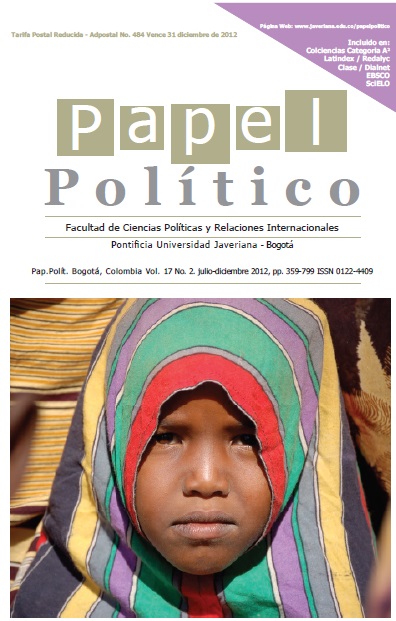Resumen
Las reformas electorales han sido un argumento institucional utilizado en el sistema político para adaptar técnica y metodologicamente la competencia por el poder. Pero, en la búsqueda de un mejor proceso electoral que se base enprincipios y funciones óptimos para el desarrollo y reconocimiento democrático, aparecen deficiencias, insuficiencias y desequilibrios en las reglas de juego. Esto de tal manera que a una reforma sigue otra en la perspectiva de adoptar o ajustar los temas que siempre quedan pendientes o que son necesario corregir oportunamente, o para paliar las consecuencias negativas no previstas o inevitables de las reformas mismas. Ocurre, particularmente, cuando ellas aquejan formulaciones inconvenientes o flagrantemente interesadas sin consenso. El sistema electoral debe evaluarse considerando el funcionamiento en sí mismo y sus efectos en la sociedad y en el sistema político en general. Por lo anterior, los ajustes políticos electorales deben responder no solo a marcos institucionales y a las fuertes restricciones neoinstitucionales (por formalismos excesivos) sino, también, de acuerdo con Dieter Nolhen, a la relevancia y pertinencia del contexto y a la búsqueda de una mejor y más legítima democracia.
Esta revista científica se encuentra registrada bajo la licencia Creative Commons Reconocimiento 4.0 Internacional. Por lo tanto, esta obra se puede reproducir, distribuir y comunicar públicamente en formato digital, siempre que se reconozca el nombre de los autores y a la Pontificia Universidad Javeriana. Se permite citar, adaptar, transformar, autoarchivar, republicar y crear a partir del material, para cualquier finalidad (incluso comercial), siempre que se reconozca adecuadamente la autoría, se proporcione un enlace a la obra original y se indique si se han realizado cambios. La Pontificia Universidad Javeriana no retiene los derechos sobre las obras publicadas y los contenidos son responsabilidad exclusiva de los autores, quienes conservan sus derechos morales, intelectuales, de privacidad y publicidad.
El aval sobre la intervención de la obra (revisión, corrección de estilo, traducción, diagramación) y su posterior divulgación se otorga mediante una licencia de uso y no a través de una cesión de derechos, lo que representa que la revista y la Pontificia Universidad Javeriana se eximen de cualquier responsabilidad que se pueda derivar de una mala práctica ética por parte de los autores. En consecuencia de la protección brindada por la licencia de uso, la revista no se encuentra en la obligación de publicar retractaciones o modificar la información ya publicada, a no ser que la errata surja del proceso de gestión editorial. La publicación de contenidos en esta revista no representa regalías para los contribuyentes.


